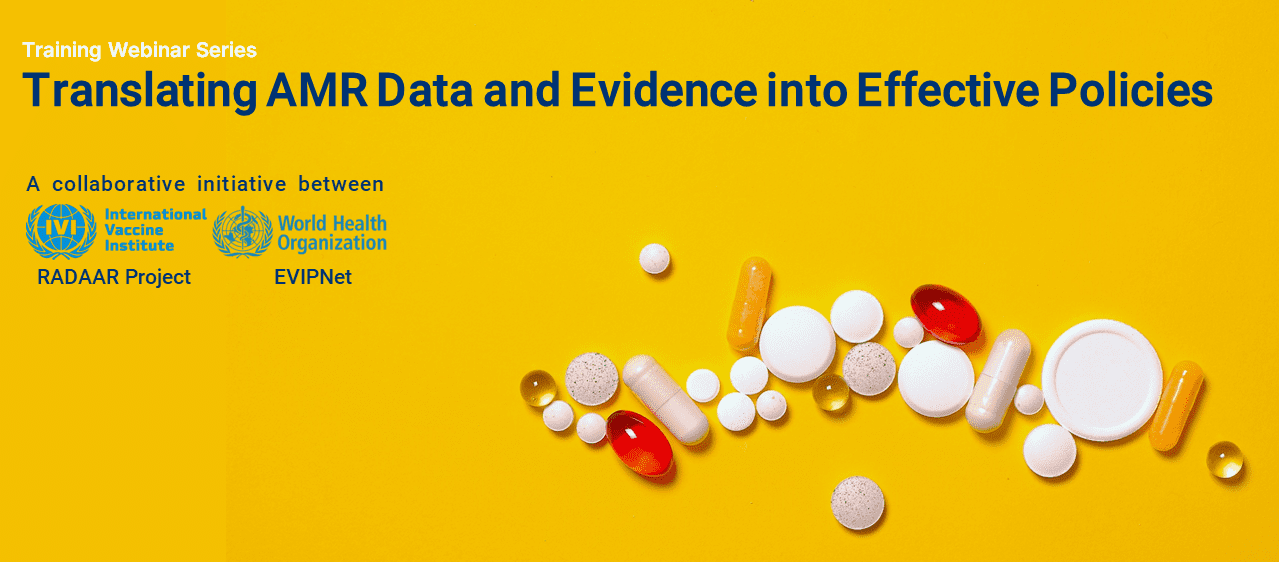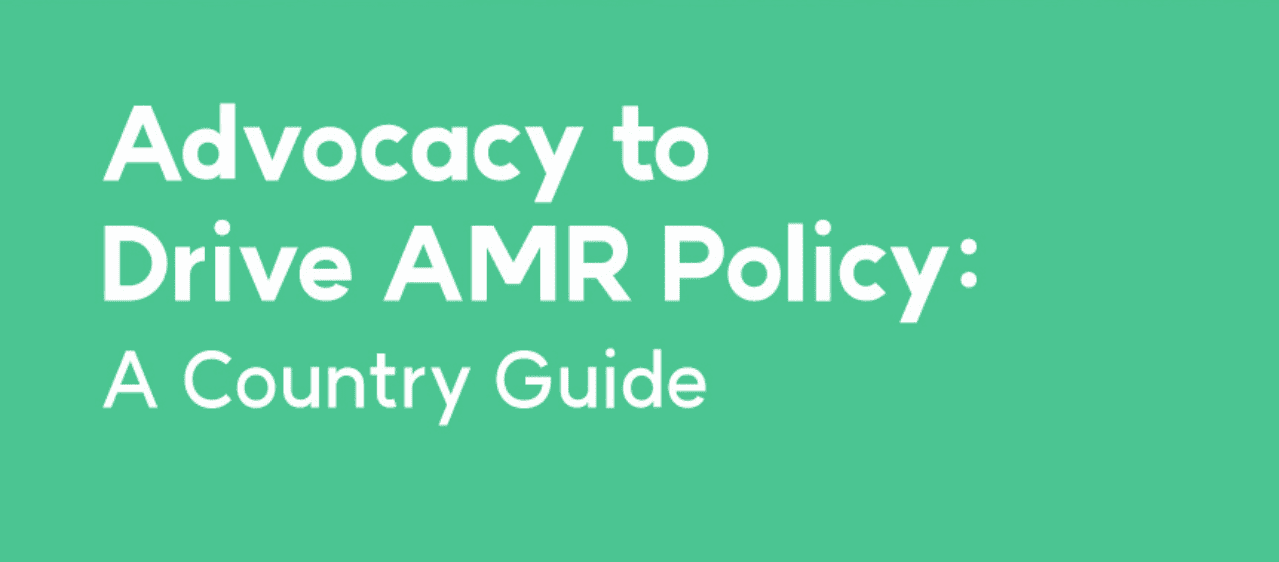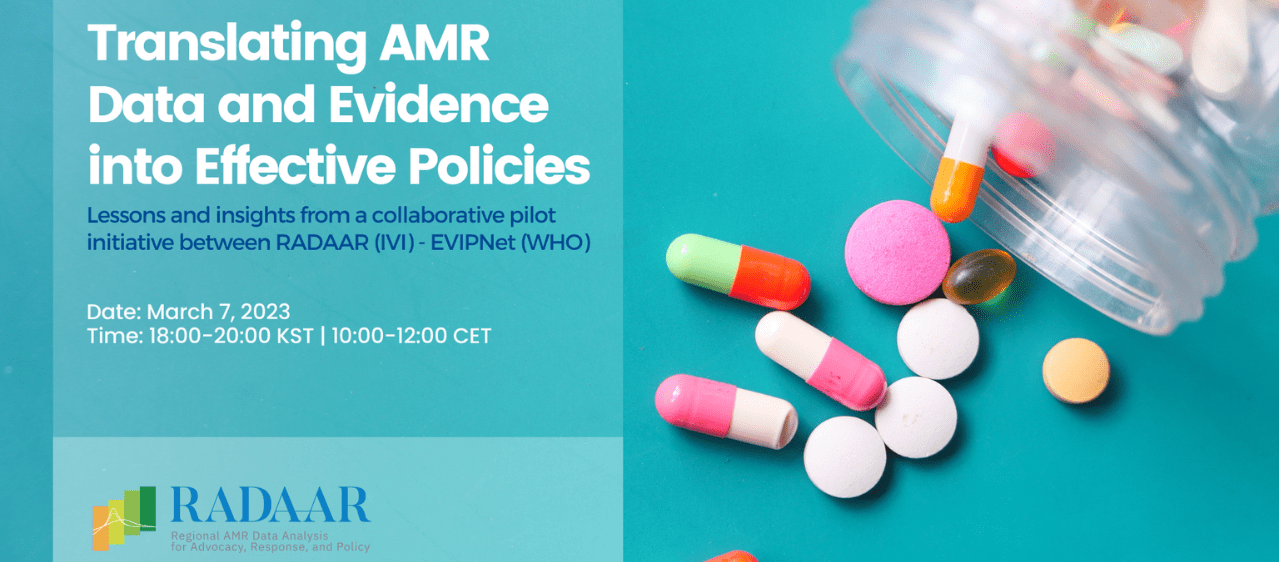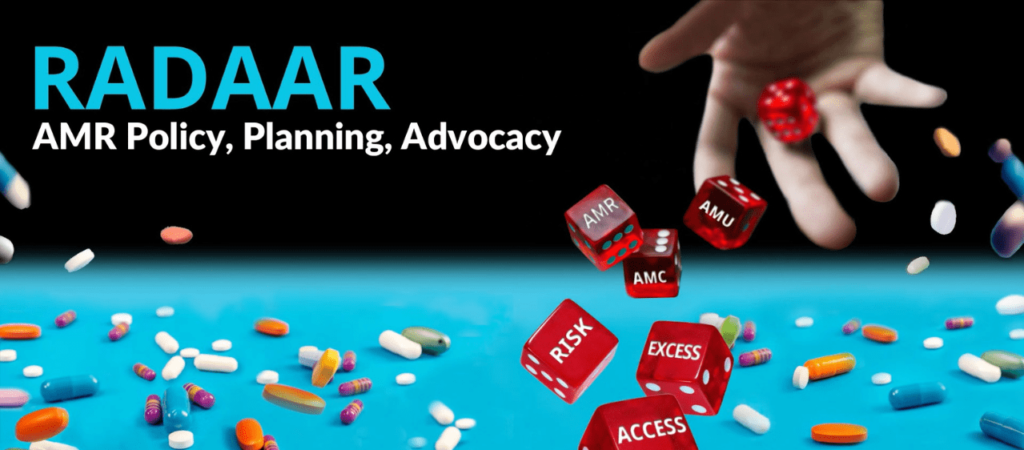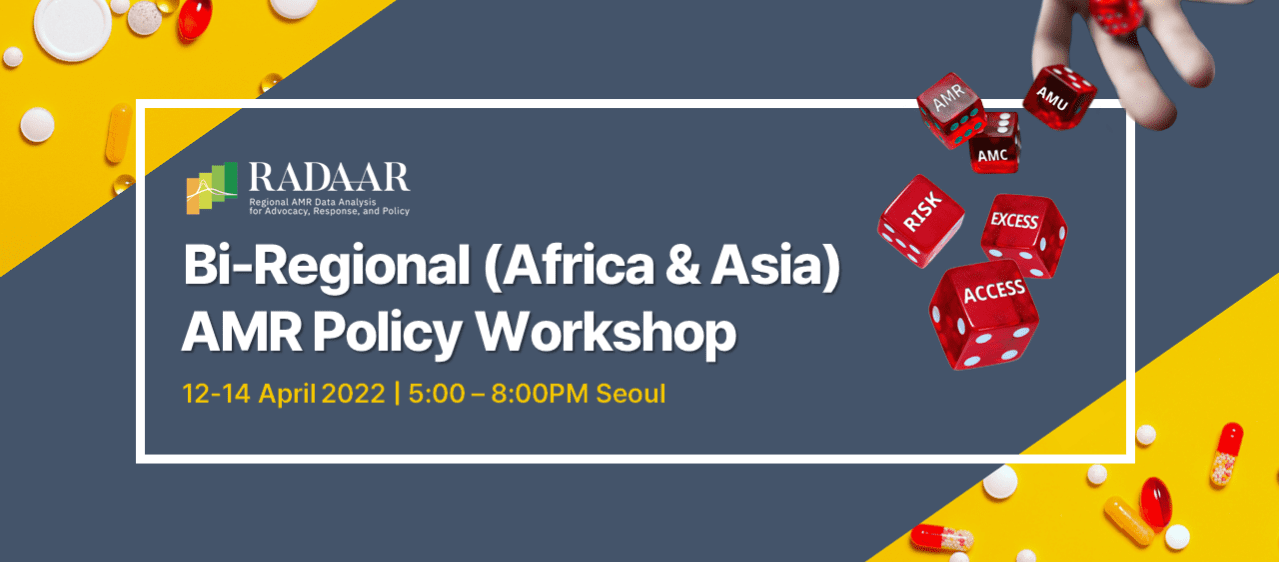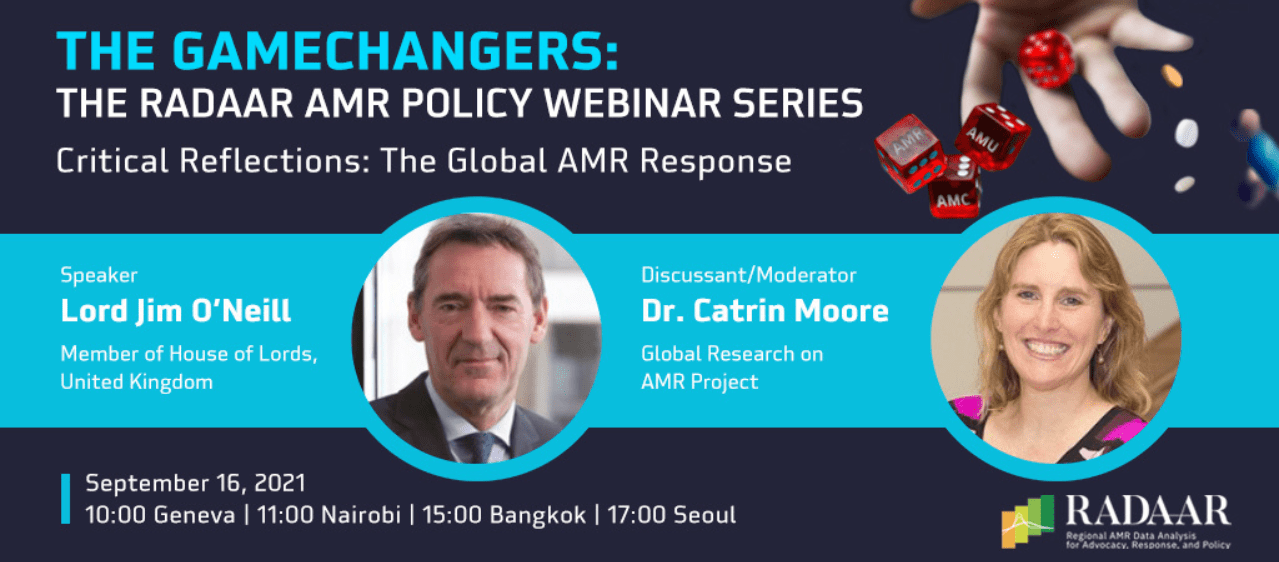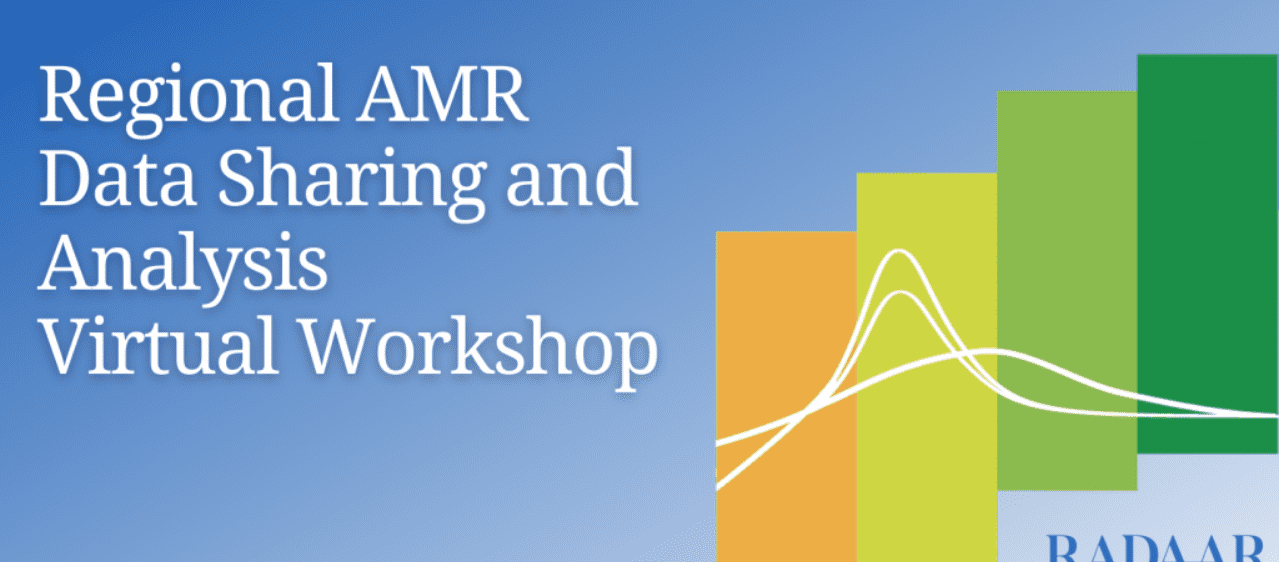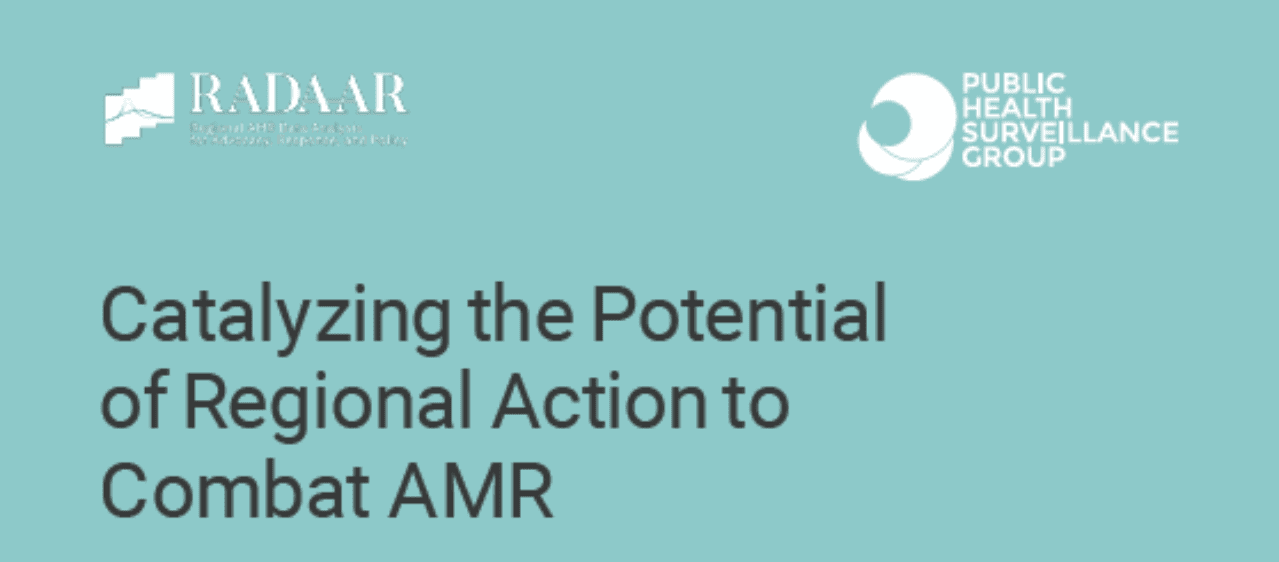
PLANNING, POLICY AND ADVOCACY
The RADAAR project focuses on: regional data-sharing and analysis to influence and facilitate evidence-based policymaking, advocacy, and response; and providing Fleming Fund priority countries with support for planning, policy and interventions. The project developed capacities and guidance around advocacy on AMR data-generation and its use in policy and planning, and brought together AMR partners through webinars, workshops, and events.
RADAAR project phase-1 summative report available here.
Training/Capacity building
The RADAAR Project provides training and capacity building to enhance AMR-related policy initiatives for low- and middle-income countries (LMICs) in Africa and Asia. In 2022, in collaboration with the World Health Organization’s (WHO) Evidence-Informed Policy Network (EVIPNet), RADAAR is providing opportunities for LMICs to strengthen capacities in translating AMR data and evidence into effective policies. A series of online training webinars initially involved Bangladesh, Malawi, Nepal, and Uganda.
Discover more >
Policy Advocacy
The RADAAR project is the only Fleming Fund regional project fully dedicated to the thematic domain of policy, planning, and advocacy. RADAAR developed tools, guidance, and capacity-building workshops on AMR policy advocacy, and organised high-profile activities and events, including a policy workshop, policy webinars, and a symposium during 2021-22. RADAAR also co-developed the ‘Advocacy to Drive AMR Policy: A Country Guide’ with country, regional, and global AMR stakeholders.
Discover more >
RADAAR Symposium 2023
RADAAR organized a symposium on 7 March 2023. It focused on the evidence-informed policy (EVIP) initiative with WHO’s EVIPNet including: presentations from the four pilot countries – Bangladesh, Malawi, Nepal, and Uganda – on their ‘Evidence briefs for policy’ (EBP); lessons and insights from an assessment conducted by RADAAR during early-2023; and recommendations for scaling-up the initiative with additional Fleming Fund priority countries.
Discover more >
WAAW 2022
RADAAR participated in the ‘AMRelay’ as part of WAAW 2022, on 24 November. The 24-hour online event featured 15-minute presentations by global stakeholders on AMR issues and discussions, with the aim of enhancing global awareness, highlighting the work of stakeholders, and increasing engagement and collaboration. RAADAR’s presentation featured videos, stills, graphics, highlighting RADAAR’s role in policy, planning, and advocacy to combat AMR. AMRelay is run by AMR Insights Ambassador Network.
Discover more >
RADAAR Policy Workshop
RADAAR hosted an AMR Policy Workshop during 12-14th April 2022 (for Asia and Africa), with the goal of contributing to strengthening capacities for evidence-informed AMR policy-making to support National Action Plan (NAP) implementation; and to create/increase demand for regional AMR data, and to advocate for AMR data uptake in regional policymaking. AMR and policy experts provided insights, experiences, and current thinking on policy-relevant issues impacting AMR policymaking.
Discover more >
RADDAR Policy Webinar
RADAAR organised a series of six policy webinars featuring AMR experts – ‘The Gamechangers’ – the overarching theme of which was to explore innovative ways to leverage policy-relevant data to drive AMR policy.
Discover more >
RADAAR Data Workshop
RADAAR hosted three regional workshops on AMR data-sharing and analysis. The workshops aimed to inform the creation of a draft regional framework for AMR data-sharing and analysis, as well as, co-development of AMR policy advocacy guidance document/tools to strengthen capacities of low- and middle-income countries (LMICs) to translate data and evidence into compelling policy pitches.
Discover more >
Catalyzing the Potential of Regional Action to Combat AMR
The RADAAR initiative aimed to support the development of regional frameworks for the sharing of One Health AMR/AMU/AMC data to the regional level, towards guiding regional and national policy and planning to combat AMR. Well-coordinated surveillance strategies and information-sharing platforms are critical in generating evidence that can be used to reduce the impact of AMR at the local, national, regional and global level.
Discover more >
Key Informant Interviews

During 2020-21, RADAAR conducted 60 key informant interviews (KIIs) with stakeholders from Bangladesh, Nepal, Malawi, Timor-Leste, Uganda, and Viet Nam (online due to COVID-19 restrictions). A further 30 interviews were conducted at the regional/global level, with experts or those coordinating major initiatives, projects, and networks. The aim was to: inform the content/design for three regional data workshops in south/southeast Asia and Africa, and policy workshops for Asia and Africa; and to identify existing regional platforms for data-sharing and analysis between countries.
RADAAR Online Survey

In April 2021, RADAAR conducted an online survey with key stakeholders and country experts involved in shaping AMR prevention and control efforts, to inform the design and content of a series of regional data and policy workshops in Asia and Africa. A total of 205 respondents from 22 Fleming Fund priority countries completed the survey. RADAAR also organized three webinars for south/southeast Asia and Africa to facilitate the completion of the survey.


